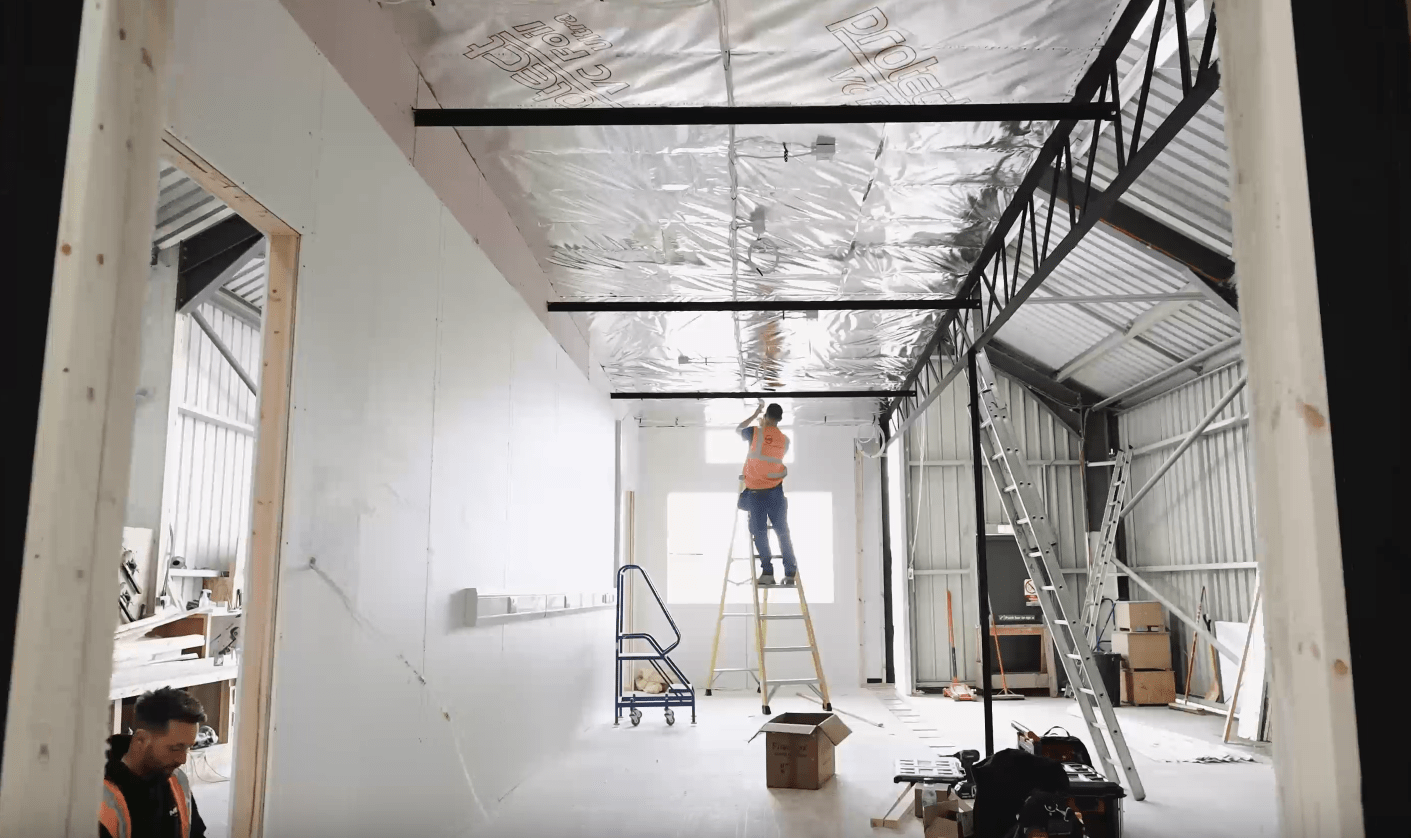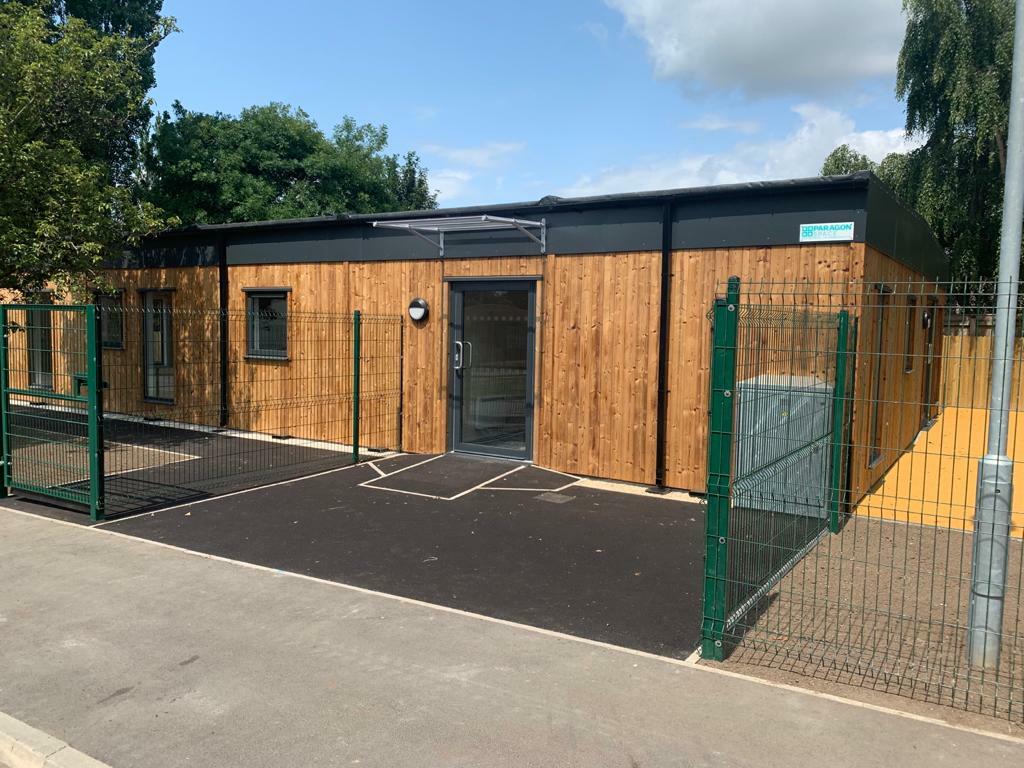Off-site construction, also known as prefabrication, is a solution to the constantly evolving construction industry. Involving manufacturing components in a factory and transporting them to the construction site for assembly, off-site construction has numerous benefits. Modular buildings are a great example of off-site construction. Modular buildings have been around for a long time, and innovation has developed them greatly over recent years.
When compared to traditional construction methods, modular buildings offer a sustainable, efficient and cost-effective alternative.
What is Off-Site Construction?
Off-site construction involves creating parts or modules of a building in a factory setting. This differs from traditional on-site methods, where all the construction work is done at the final location. Components from entire rooms, walls or sections are manufactured to precise specifications and then transported to the site for assembly.
Off-site construction can take different forms:
• Modular Buildings: Entire modules or units are constructed off-site and later assembled on-site. Modular buildings are used for anything from schools to office spaces and healthcare facilities.
• Panelised Systems: Wall panels are built off-site, delivered, and erected on-site.
• Volumetric Construction: 3D sections or volumes of a building are created off-site. These can range from fully completed rooms to more basic structural components.
Off-site construction begins with a detailed design phase, where precise specifications are coupled with the requirements of the end user. Once the design is finalised, production in the factory begins, followed by on-site assembly. This method is significantly different from traditional construction. Conventional construction requires more time, resources, and flexibility to accommodate weather, delays, and other external factors.

The Connection Between Off-Site Construction and Modular Buildings
Modular buildings are one of the most recognisable forms of off-site construction. Each module is constructed in a controlled factory environment, ensuring higher quality and precision than on-site builds. The key difference between modular and traditional construction is that modules are built in sections. This allows for faster completion of projects, reduced material waste, and enhanced safety conditions.
Modular buildings are not a new concept, but over time, techniques have progressed, and the benefits of off-site construction have become more apparent. They can be used for a wide range of purposes, including:
• Schools and educational facilities: Modular classrooms allow schools to expand facilities.
• Healthcare facilities: Modular buildings have been used to provide extra beds and install new clinics where needed.
• Commercial buildings: Offices and retail spaces can all be constructed using modular methods.
Benefits of Off-Site Construction for New Projects
While project planners are looking for new ways to approach construction, off-site construction offers numerous benefits. Let’s look at some advantages of using off-site construction and modular buildings in new projects.
Faster Project Completion One of the most significant advantages of off-site construction is how quickly projects can be completed. Traditional construction can take months or even years to complete. Traditional construction projects can be affected by adverse weather conditions and material supply issues. Off-site construction can continue regardless of weather conditions, and site preparation can take place while the modules are being manufactured. The Modular & Portable Building Association states modular construction projects can be completed 30-50% faster than traditional builds.
Improved Quality Control Off-site construction takes place in a controlled factory environment with strict quality control processes. Building components are produced indoors and protected from weather, vandalism, and other risks. Quality control in a factory setting produces a high level of precision for more robust, long-lasting buildings.
Reduced Waste and Increased Sustainability Traditional construction generates a significant amount of waste. Materials such as wood, metal and concrete are often over-ordered or discarded due to over-ordering. Modular buildings and off-site construction are much more efficient. This process allows for better inventory management and more accurate use of materials. According to WRAP (Waste & Resources Action Programme), off-site construction can reduce waste by up to 90% compared to traditional construction methods.
The modular building method also has a lower environmental footprint. Because modules are constructed off-site, there is less noise, pollution and disruption at the building site. Modular construction also produces fewer carbon emissions than traditional construction.
Cost Savings Faster construction times, improved quality control and reduced waste all contribute to significant cost savings for construction projects. Factories can produce multiple modules simultaneously, using repetitive processes and machinery, leading to lower labour and material costs.
Enhanced Safety Safety is a major concern in the construction industry, where accidents and injuries regularly occur. Off-site construction significantly reduces these risks. As much of the work is done in a factory environment, workers are exposed to fewer hazards than on construction sites. Heavy machinery, working at heights, and unpredictable weather conditions can cause safety issues that are not found in a factory environment. According to a 2019 study by McKinsey & Company, modular construction sites have been shown to experience 80% fewer safety incidents compared to traditional sites.
Design Flexibility and Customisation One of the misconceptions of modular buildings is that they limit design flexibility. However, this is not true; modular buildings offer a high level of bespoke design, making them an excellent solution for various industries.

Paragon Space Manufactures Modular Buildings in Hull
Modular building manufacturers are helping project managers to deliver projects faster and more efficiently. Off-site construction offers developments cost savings without compromising on quality.
Businesses can save time and money by recognising the benefits of modular buildings and their off-site construction methods. Developments can be completed quicker with efficient material use and reduced labour costs. In addition, cost savings come from less material waste and fewer delays from accidents and incidents.
Paragon Space have been supporting off-site construction developments for over 15 years. Our experienced team provide bespoke design options to deliver quality modular buildings that suit every requirement.